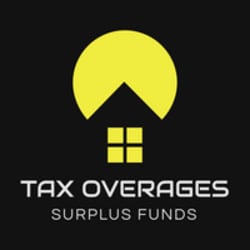All Categories
Featured
Table of Contents
Our excess funds healing attorneys have actually helped homeowner recuperate countless dollars in tax sale excess. Many of those home owners really did not even understand what excess were or that they were also owed any surplus funds at all. When a homeowner is incapable to pay home tax obligations on their home, they may lose their home in what is referred to as a tax obligation sale public auction or a constable's sale.
At a tax obligation sale public auction, properties are sold to the greatest bidder, nonetheless, sometimes, a residential or commercial property may cost greater than what was owed to the region, which causes what are known as excess funds or tax sale excess. Tax sale overages are the money left over when a foreclosed building is cost a tax obligation sale public auction for greater than the quantity of back taxes owed on the residential property.
If the residential or commercial property costs more than the opening proposal, then overages will be created. Nonetheless, what a lot of homeowners do not know is that several states do not enable regions to keep this additional money for themselves. Some state statutes determine that excess funds can just be asserted by a few parties - consisting of the person who owed taxes on the residential property at the time of the sale.
If the previous building proprietor owes $1,000.00 in back tax obligations, and the residential property costs $100,000.00 at auction, then the regulation states that the previous homeowner is owed the distinction of $99,000.00. The area does not reach maintain unclaimed tax obligation overages unless the funds are still not asserted after 5 years.
Best-In-Class Tax Overage Recovery Strategies Training Mortgage Foreclosure Overages
Nonetheless, the notification will normally be sent by mail to the address of the property that was offered, yet because the previous homeowner no much longer lives at that address, they commonly do not get this notification unless their mail was being sent. If you are in this circumstance, do not allow the government maintain money that you are qualified to.

From time to time, I listen to discuss a "secret new possibility" in business of (a.k.a, "excess profits," "overbids," "tax obligation sale surpluses," and so on). If you're completely not familiar with this principle, I would love to provide you a fast summary of what's going on right here. When a residential or commercial property owner quits paying their residential property taxes, the regional community (i.e., the area) will certainly await a time before they seize the property in foreclosure and offer it at their yearly tax sale public auction.
uses a comparable design to recover its lost tax obligation income by offering residential or commercial properties (either tax deeds or tax obligation liens) at an annual tax sale. The information in this article can be impacted by many distinct variables. Always talk to a professional lawful specialist prior to doing something about it. Expect you possess a residential or commercial property worth $100,000.
Strategic Bob Diamond Tax Overages Blueprint Approach County Tax Sale Overage List

At the time of foreclosure, you owe ready to the county. A few months later, the county brings this home to their annual tax sale. Below, they sell your building (in addition to loads of other delinquent residential or commercial properties) to the highest bidderall to redeem their lost tax obligation revenue on each parcel.
This is since it's the minimum they will certainly require to recover the money that you owed them. Here's the point: Your residential or commercial property is easily worth $100,000. Many of the financiers bidding process on your residential or commercial property are fully familiar with this, too. In a lot of cases, residential properties like yours will certainly get proposals much beyond the quantity of back tax obligations really owed.
But get this: the county just needed $18,000 out of this property. The margin in between the $18,000 they required and the $40,000 they got is recognized as "excess profits" (i.e., "tax sales overage," "overbid," "surplus," and so on). Lots of states have laws that forbid the area from keeping the excess settlement for these residential or commercial properties.
The area has policies in area where these excess proceeds can be declared by their rightful proprietor, usually for a designated period (which varies from state to state). And that specifically is the "rightful owner" of this cash? It's YOU. That's best! If you lost your building to tax repossession because you owed taxesand if that home subsequently cost the tax obligation sale public auction for over this amountyou might probably go and gather the distinction.
Market-Leading Real Estate Overages Course Bob Diamond Overages
This includes verifying you were the prior proprietor, completing some documents, and waiting for the funds to be provided. For the typical person that paid complete market value for their building, this strategy doesn't make much sense. If you have a significant amount of cash money spent right into a home, there's way way too much on the line to just "let it go" on the off-chance that you can bleed some additional squander of it.
With the investing technique I utilize, I can get residential or commercial properties cost-free and clear for dimes on the dollar. To the surprise of some capitalists, these deals are Assuming you know where to look, it's truthfully not difficult to locate them. When you can buy a home for an extremely inexpensive rate AND you recognize it deserves significantly greater than you paid for it, it may effectively make good sense for you to "roll the dice" and attempt to accumulate the excess profits that the tax obligation foreclosure and auction process generate.
Exclusive Foreclosure Overages List Program Tax Auction Overages
While it can certainly turn out comparable to the means I've described it above, there are also a couple of drawbacks to the excess proceeds approach you actually should certainly understand. Best States for Tax Overages. While it depends significantly on the characteristics of the residential property, it is (and in some instances, likely) that there will be no excess profits generated at the tax obligation sale public auction
Or possibly the area doesn't produce much public interest in their auctions. In any case, if you're acquiring a building with the of letting it go to tax obligation foreclosure so you can gather your excess proceeds, what happens if that cash never ever comes through? Would it deserve the moment and money you will have squandered as soon as you reach this verdict? If you're expecting the region to "do all the work" for you, then think what, In a lot of cases, their timetable will literally take years to work out.
The very first time I sought this strategy in my home state, I was informed that I didn't have the alternative of claiming the excess funds that were created from the sale of my propertybecause my state didn't permit it (Real Estate Overage Funds). In states similar to this, when they create a tax obligation sale excess at a public auction, They simply keep it! If you're thinking of using this strategy in your service, you'll want to assume lengthy and tough about where you're working and whether their regulations and laws will certainly also permit you to do it
Strategic Tax Lien Overages Approach Tax And Mortgage Overages
I did my finest to provide the appropriate solution for each state above, but I 'd suggest that you before continuing with the assumption that I'm 100% right. Keep in mind, I am not an attorney or a certified public accountant and I am not attempting to provide professional legal or tax obligation recommendations. Speak to your lawyer or certified public accountant before you act on this details.
Latest Posts
Property Tax And Foreclosure
Foreclosure Overage
What Is Tax Lien Certificate Investing